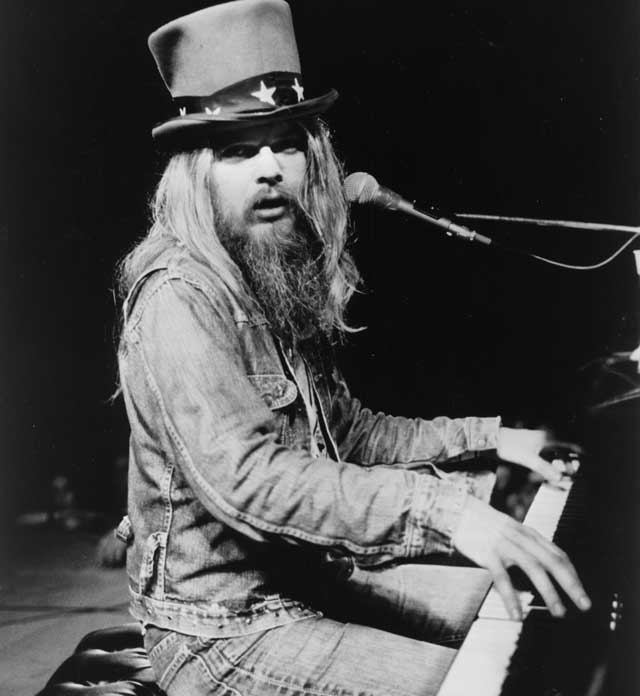Not Always a Favorite Son
The late Leon Russell made Tulsa famous for rock, but
only later was he an eminence grise.
Even as far back as the early 1960s, a case could’ve been made for naming the late Leon Russell as an Oklahoman of the Year.
In the vanguard of Tulsa rockers who headed west at the end of the ’50s, Leon soon climbed to the very top of Los Angeles’s studio-musician ladder. A member of what came to be known as the Wrecking Crew, an elite aggregation of players that at one time or another also included future stars Glen Campbell and Leon’s fellow Oklahoman Barney Kessel, he had a hand in shaping the sound of America’s popular music by playing keyboard on some of the best-known recordings of the day.

By their very nature, however, studio musicians aren’t in the spotlight. So perhaps that wasn’t the right time to honor him.
Then, there was that great period of activity that began in the first part of 1970, when Leon hit the road as the music director for Joe Cocker’s Mad Dogs & Englishmen tour and ended up headquartered in northeastern Oklahoma, showering Tulsa with rock ’n’ roll stardust. Those were the days when you might see George Harrison walking down the sidewalk, Eric Clapton jamming in a little club or Leon himself pulling up to Pennington’s Drive-In in his Rolls Royce to order up a wedge of black-bottom pie.
T-Town was a magical scene then, ripe with possibilities, and, as with Mad Dogs & Englishmen, Leon stood firmly at its axis, the top-hatted ringmaster of the whole damn circus.
At the same time, he’d entered the most high-profile period of his solo career, recording hit albums and singles and penning future standards like “This Masquerade,” “A Song for You,” “Tight Rope” and “Superstar.”
The attitudes and prejudices of the ’60s, however, still hung around. Far from being the locally celebrated eminence grise he became in his last few years, Leon and everything he did then represented the counterculture. To a significant segment of Oklahoma’s population, that meant he was a hippie, a freak and a threat to the American way of life. (The implied danger associated with rock music and its performers was perfectly summed up on a bumper sticker affixed to the bus that carried members of the Medicine Ball Caravan, another roadshow that careened across America in ’70. It read, “We Have Come for Your Daughters.”)
So, a sizable number of folks would likely have looked askance at designating this hippie boy, influential as he was, as an Oklahoman of the Year during the early ’70s.
Over the next four-plus decades, Leon never let up, never went away. He continued creating great music, new labels, fresh songs, memorable shows. In his last years, as Elton John turned a spotlight on him, his international profile elevated and reminded others what many of us never forgot: Leon Russell was nothing less than a major figure in American popular music.
Now that he’s gone (in November at age 74), we realize it even more. Thus, this posthumous honor.
– John Wooley
(An Oklahoma Magazine columnist and contributing editor, John Wooley is working with author Steve Todoroff on the upcoming Leon Russell biography, Longhair Music.)























